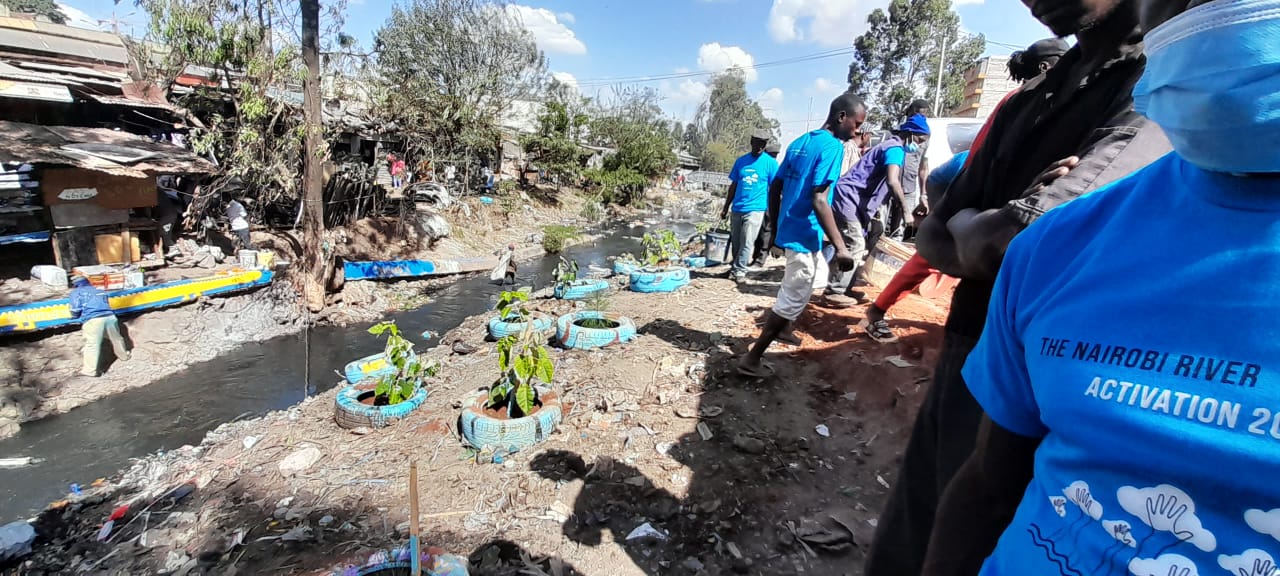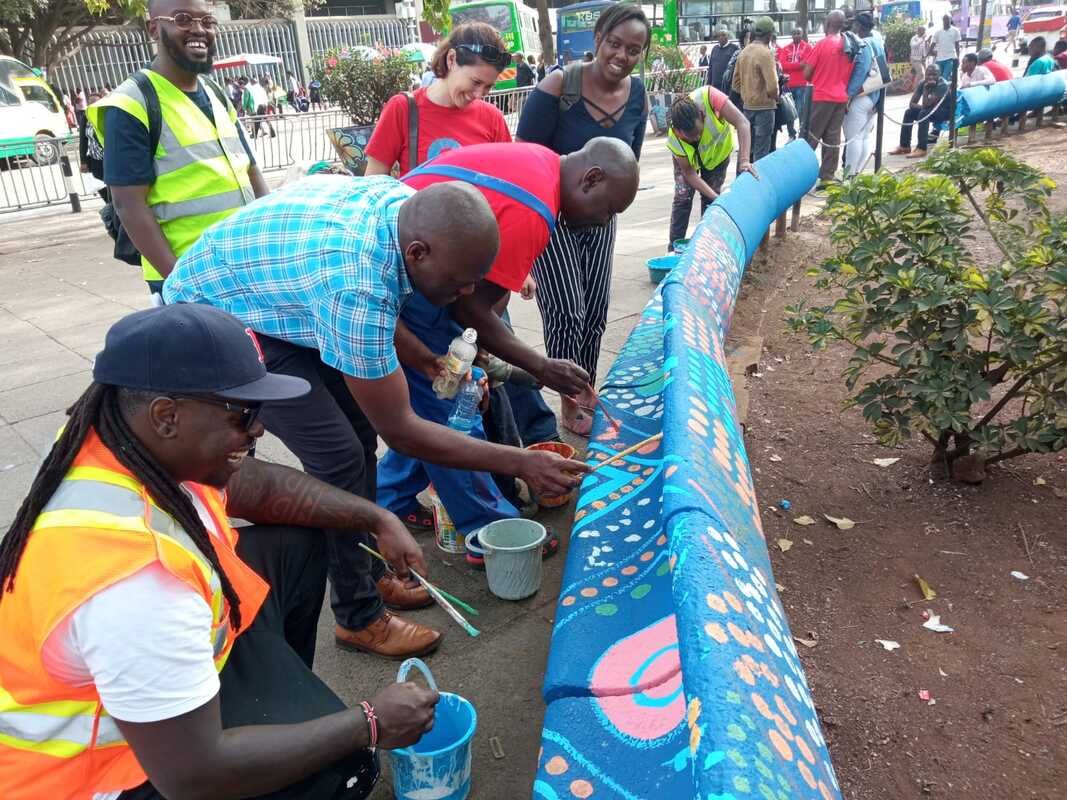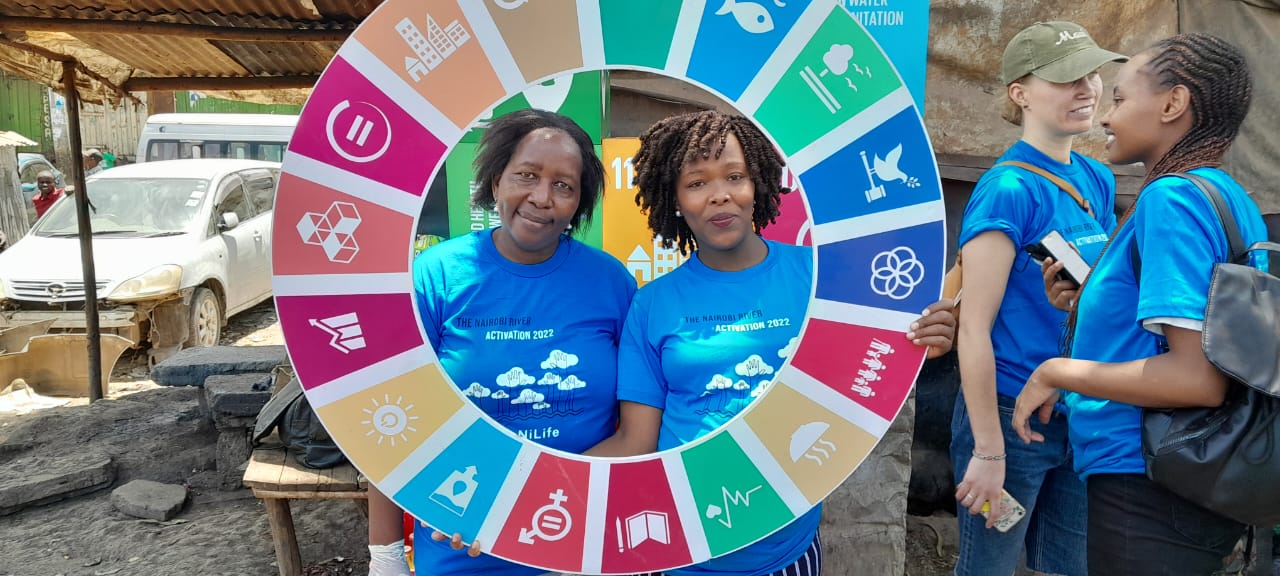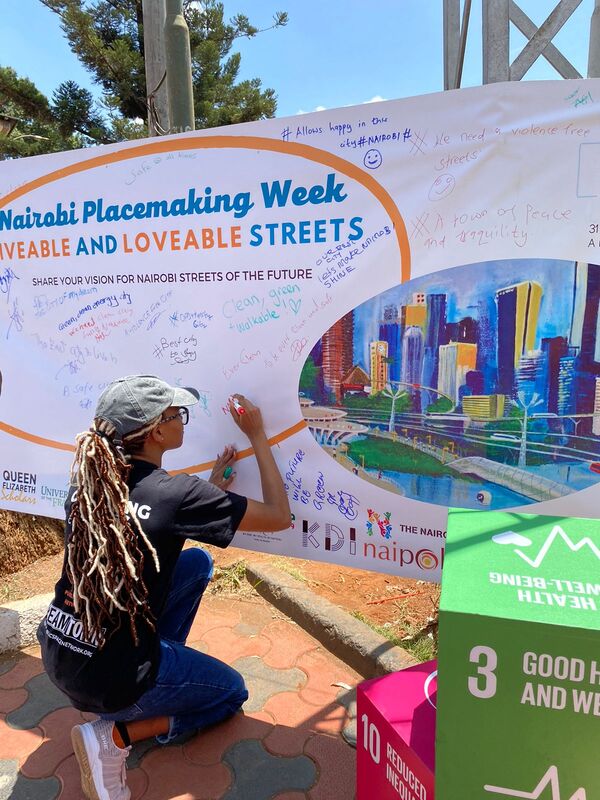Nairobi is celebrating its “Streets of the Future” during Urban October
|
October 2022 - As part of UrbanOctober, UN-Habitat celebrated “Nairobi Streets of the Future” during the Placemaking Week Nairobi 2022. The Placemaking Week sought to increase awareness of the importance of streets as quality public spaces in Nairobi and to celebrate community-led activities revolutionising the experience of streets that can contribute to health, resilience and equity. Placemaking Week Nairobi is an annual event organised by the Placemaking Network Nairobi and has been held since 2016. Since then, it has taken a “life on its own”, and every year, the network is adding new organisations, individuals, sectors and disciplines to jointly work towards cleaner, greener, and safe public spaces and streets.
Urban enthusiasts, invited stakeholders, place makers, artists, and passers-by led and engaged in several events in the city. The Kounkuey Design Initiative led the Nairobi River activation with clean-up and riverbank-making activities. Naipolitans held the Partcitypate Urbanist Studio on Kimathi Street, aimed at codesigning solutions for identified challenges, identifying issues that require further research, and proposing areas for interventions. The Architectural Association of Kenya, in collaboration with the Urban Thinkers Campus, held diverse urban dialogue sessions on the essentials of city building, specifically on efficient urban management. There was an assessment of renovated streets in the CBD using skills learned from the HerCity process and led by GoDown Arts Centre, mural painting, yoga sessions, and a drum circle to activate public spaces in the city centre organised by TICAH, the Kilimani Street festival led by Kilimani Project Foundation, the Nairobi street parade led by Public Space Network, and a cycle event. “Ride your city: Cycling for liveable cities and our rivers,” organised through the International Climate Initiative supported by Urban Pathways in collaboration with Critical Mass Nairobi and Mama cycling, brought together about 300 cyclists to highlight the need for complete and interconnected cycling networks that provide access to the city and its public spaces including the Nairobi river. Cyclists gathered on City Hall Way, one of the arterial streets for the proposed City Hall Way - Accra Road – Nairobi River Boulevard, to connect the city and the river and to highlight the potential of streets to spur urban regeneration, low carbon development and revitalise the downtown areas. Forty percent of Nairobi residents make their daily trips on foot, with an increase in cycling. Walking is also a part of the daily mobility patterns for public and private transport users. People-centred approaches to urban planning and design are essential to promote walking and cycling and re-establish streets as important shared spaces and powerful symbols of the public realm that enhance connectivity, social interaction, environmental value and commerce. Streets that utilise complete design to enhance access, safety, and comfort of walking and cycling offer alternatives and promote a shift to sustainable mobility modes, enhancing street function and the relationship between the street and adjacent spaces, including the rivers. Connecting the streets of Nairobi with the Nairobi River through space for cycling, pedestrian precincts, and public spaces can create opportunities for social and economic inclusion for all residents, especially in the low-income neighbourhoods, and provide adaptive and responsive solutions to the increasing challenges with mobility and congestion, declining health, air and water pollution, climate change and deteriorating quality of life. UN-Habitat representative Mr. Oumar Sylla flagged off the cyclists and, in his message marking the end of Placemaking week, noted that “we cannot fail to acknowledge the role of public and green spaces, streets and rivers in enhancing the resilience and sustainability of our cities”. In alignment with the UN Road Safety Fund supported project “Reclaiming Streets for Pedestrians and Cyclists” – he further emphasised that the event and the upcoming Nairobi River Life project are great opportunities to enhance road safety as well as the connection between the river, our neighbourhoods, and the city through safe and sustainable transport systems and encouraged the city to optimise the nexus between nature and urbanisation through the integration of nature-based solutions, especially in urban planning and design. Public engagement is a fundamental part of the Nairobi River Life Project. Two co-visioning exercises, co-organised with Kounkuey Design Initiative and Placemaking Network Nairobi, were held alongside the river activation and cycling event to continue the collaborative process toward reclaiming Nairobi River, and also to gather views on the visions for liveable and lovable Nairobi streets of the future. |





